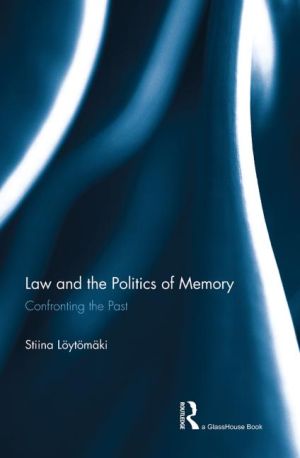
The Law and Politics of Memory Concerning Past Injustices examines law's role as a tool of memory politics in the efforts of various contemporary societies to work through the traumas of their past. The book examines how and why law has become so central in processes in which the past is constituted as a series of injustices that need to be rectified and can allegedly be repaired. In this respect, however, its focus is not on immediate post-conflict situations, but rather injustices that have taken place decades or centuries ago. It is precisely these kinds of legal memory demands that proliferate in contemporary societies. And, addressing the politics of memory surrounding the Holocaust, communism and colonialism, this book provides a critical exploration of law's role in 'belated' transitional justice contexts. As such, it explores different legal modalities in processes of working through the past; addressing the implications of regulating history and memory through legal categories and legislative acts, whilst exploring how trials, restitution cases, and memory laws manage to fulfil such varied expectations as clarifying truth, rendering homage to memory and reconciling societies.